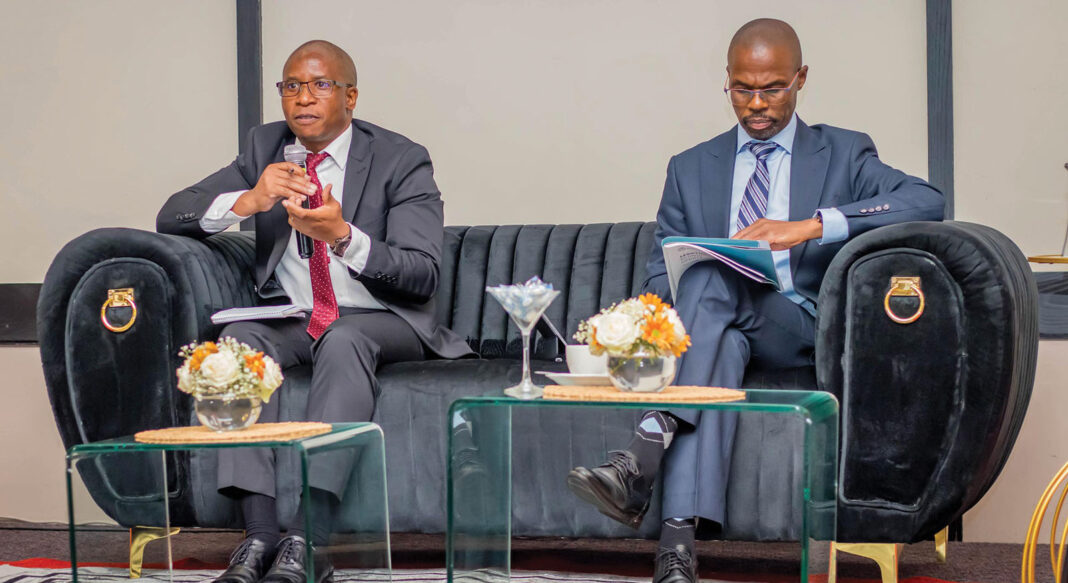Lesotho’s private sector development continues to face significant challenges, including a weak business environment, an outsized public sector, a shortage of skilled labour, limited access to financing for small and medium enterprises (SMEs), and a widening infrastructure gap.
These issues were highlighted in the first ‘Lesotho Economic Update’, a report launched this week by the World Bank Group in the capital Maseru this week.
According to the report, domestic investment in 2024 accounted for only 15 percent of Gross Domestic Product (GDP), while foreign direct investment (FDI) dropped to below one percent of GDP.
The report says the limited role of the private sector not only stifles job creation but also hampers the government’s ability to generate adequate tax revenue.
A challenging regulatory environment, skill mismatches, limited business credit, and infrastructure deficiencies are all cited as major constraints on private sector growth.
Persistent poverty is exacerbated by the sector’s weak job creation capacity and the impact of multiple external shocks, it notes.
Worryingly, the private sector is contracting and formal job numbers are on the decline.
“The number of workers employed in the private sector shrank by 32 percent between early 2019 and 2024,” the report states.
“Job losses were especially pronounced in the textile industry due to uncertainty around the renewal of the African Growth and Opportunity Act (AGOA) and fears over competitiveness,” it adds.
Consequently, despite a recent hiring freeze, the public sector has become the largest formal employer in the country.
The Governor of the Central Bank of Lesotho (CBL), Maluke Letete, expressed cautious optimism about the potential of the private sector to drive economic growth. However, he acknowledged the slow pace at which the sector is delivering results.
“For the private sector to be more effective, it must evaluate and improve its performance,” Letete said.
He also criticised some private sector practices, citing that certain businesses exploit government procurement processes.
“There are instances where the private sector provides services to the government, that it hasn’t actually delivered, often in exchange for minimal returns,” he said.
The Minister of Finance and Development Planning, Retšelisitsoe Matlanyane, stressed the essential role of the private sector in driving the country’s economic development.
“While fiscal policy debates are important, it’s crucial to remember that sustainable economic growth must be led by the private sector,” Matlanyane said.
She challenged businesses to adopt a more proactive mindset. “Although the private sector often blames the government for inaction, in other countries, private businesses lead innovation and growth. The sector must move ahead of the government rather than waiting for state intervention,” she added.
Economist Leseko Makhetha noted that the root of Lesotho’s private sector challenges lies in deep-seated economic realities.
“There’s a weak value chain between industries. For example, it’s difficult for local farmers to supply domestic industries, which undermines competitiveness,” he explained.
Makhetha said the economy remains overly reliant on revenue from the Southern African Customs Union (SACU) and the textile industry, with minimal diversification.
He also emphasised the mismatch between educational output and labour market needs.
“Many graduates can’t find work because the private sector needs practical, skilled labour to grow,” he pointed out.
One potential solution, Makhetha suggested, is improving access to credit. “Strengthening financing mechanisms could help the private sector thrive. Farmers should be able to supply local markets instead of relying on imports from South Africa.”
Makhetha further stressed the need to improve the ease of doing business in Lesotho. “Reducing red tape and streamlining regulatory processes are essential if we’re to attract foreign investors and compete regionally. We cannot afford to operate in isolation,” he added.








